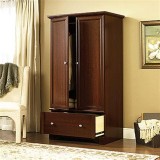Why Does My Clipsal Smoke Alarm Keep Going Off?
Smoke alarms play a critical role in protecting lives and property by alerting occupants to the presence of smoke, a common indicator of a fire. However, when a smoke alarm malfunctions and begins emitting false alarms, it can become a nuisance and undermine its usefulness.
If you're experiencing persistent false alarms from your Clipsal smoke alarm, it's crucial to identify the underlying cause. Various factors can contribute to false alarms, ranging from environmental conditions to faulty components. Understanding the essential aspects of smoke alarm maintenance and troubleshooting can help you resolve the issue effectively.
Essential Aspects to Consider
Location and Placement: The placement of your smoke alarm is crucial. Ideally, smoke alarms should be installed in every bedroom, outside each sleeping area, and on every level of your home. Avoid placing alarms near windows, doors, or vents, as drafts or external factors can trigger false alarms.
Environmental Factors: Smoke alarms are sensitive to environmental factors, such as dust, humidity, and cooking fumes. Excessive dust accumulation can obstruct the smoke sensor, causing it to trigger false alarms. Similarly, high humidity levels or cooking fumes can also interfere with the alarm's operation.
Maintenance and Cleaning: Regular maintenance is essential for ensuring the proper functioning of your smoke alarm. Regularly vacuum or wipe down your alarm to remove dust and debris. Avoid using cleaning agents or water directly on the alarm, as this can damage the components.
Battery Life: Many Clipsal smoke alarms are equipped with both AC and battery backup power. Over time, batteries can weaken and fail to provide adequate backup power, leading to false alarms. It's recommended to replace the batteries every 6-12 months or as per the manufacturer's instructions.
Component Malfunctions: Occasionally, internal components of the smoke alarm can malfunction, leading to false alarms. If you suspect a component malfunction, it's best to consult a qualified electrician or contact the manufacturer for assistance.
End of Life: Smoke alarms have a limited lifespan, typically around 10 years. After this period, the components may begin to deteriorate, increasing the likelihood of false alarms. If your smoke alarm is nearing its end of life, it's recommended to replace it with a new one.
Conclusion
Identifying and addressing the underlying cause of false alarms from your Clipsal smoke alarm is essential for restoring its functionality and ensuring the safety of your home and family. By considering the essential aspects outlined above, you can effectively troubleshoot your alarm and prevent unnecessary false alarms. Remember, a well-maintained and properly functioning smoke alarm is a vital part of your home safety system.
Why Do Smoke Detector Alarms Go Off Even When There S No Abc News

Why Do Smoke Alarms Keep Going Off Even When There S No

A Guide To Fixing Your Clipsal Smoke Alarms Tenmen Electrical

Faqs Smoke Alarms Clipsal By Schneider Electric

Why Do Smoke Alarms Keep Going Off Even When There S No

How To Disable Your Smoke Alarm Safely Clipsal 240v Coast Alarms

How To Disable Your Smoke Alarm Safely Clipsal 240v Coast Alarms

Why Do Smoke Alarms Keep Going Off Even When There S No

Smoke Alarm Randomly Going Off Easy Fix

How To Fix Your Beeping Smoke Alarms Troy Spro








